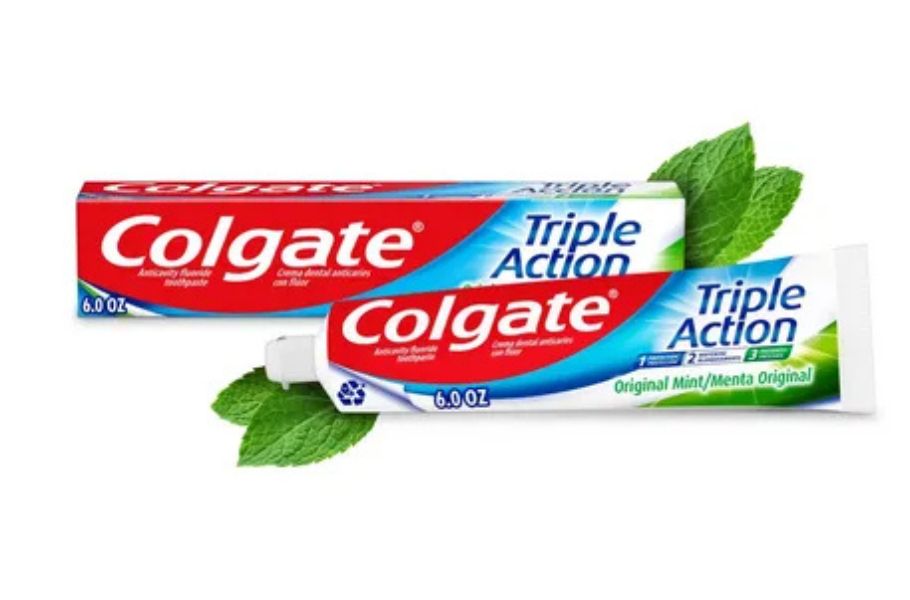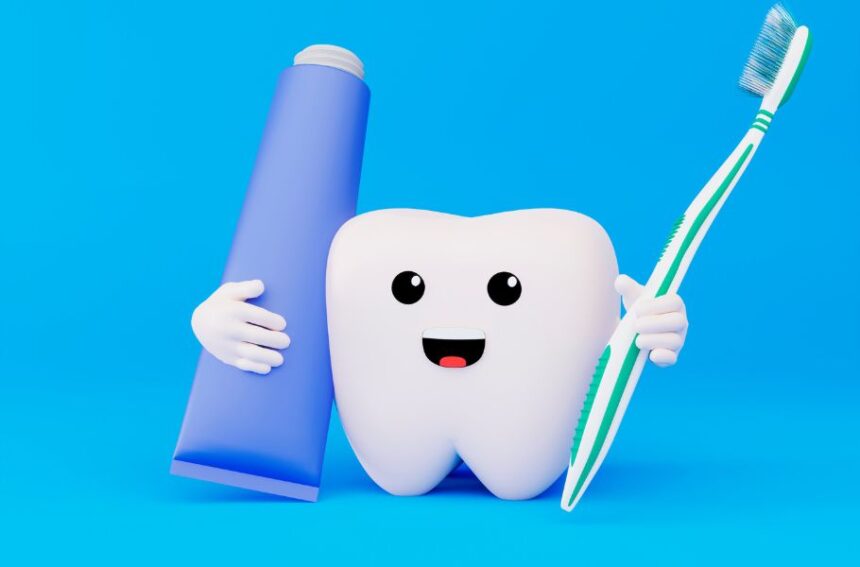is there algae in colgate toothpaste something most people use at least twice a day without thinking much about what’s actually inside that tiny tube. Among the many questions people ask about ingredients in toothpaste, one curious query stands out: “Is there algae in Colgate toothpaste?” The thought of brushing your teeth with algae might sound strange, but as natural ingredients become more common in personal care products, this question deserves an in-depth, well-researched answer.
Common ingredients in Colgate toothpaste
Colgate, being one of the most globally recognized dental care brands, uses a combination of both natural and synthetic ingredients to ensure proper cleaning, protection, and freshness. Most Colgate variants include ingredients such as fluoride (usually sodium fluoride), hydrated silica, sorbitol, glycerin, sodium lauryl sulfate, flavoring agents, cellulose gum, and sometimes triclosan (though this has been phased out in several countries due to health concerns).
Hydrated silica acts as a gentle abrasive to help remove stains and plaque, glycerin keeps the paste moist, while cellulose gum gives it texture. These are all carefully chosen for their effectiveness, but none of these is directly derived from algae at least, not in their obvious form.
What is algae and how is it used?
Algae is a diverse group of aquatic organisms that includes seaweed and microalgae. In the beauty and health industry, algae are highly valued for their rich nutritional content. They are packed with vitamins, minerals, antioxidants, and even natural exfoliating properties.
In cosmetics, algae extracts are used to hydrate the skin, fight free radicals, reduce inflammation, and even improve elasticity. They’re often found in face creams, lotions, serums, and hair care products. Due to their natural origin and potent benefits, algae-derived ingredients are gaining popularity in personal care.
Is algae used in toothpaste?
Yes, algae can be found in some toothpaste formulations especially those marketed as “natural” or “organic.” For instance, some boutique or eco-friendly toothpaste brands may use algae like spirulina or chlorella for their antioxidant properties or to provide a mild scrubbing effect.
Some variants of toothpaste use ingredients derived from red algae such as carrageenan a substance often used as a thickener and stabilizer. Carrageenan is extracted from certain red seaweeds and can be found in some oral care products. However, it’s important to note that carrageenan isn’t exclusive to algae; it’s just a derivative.
Does Colgate actually use algae?

Now comes the core question: Is there algae in Colgate toothpaste? Based on the ingredient lists published by Colgate for most of its popular products, there is no clear mention of algae or algae-derived ingredients like spirulina or chlorella in its formulations.
Natural ingredients in modern toothpaste
In recent years, is there algae in colgate toothpaste industry has experienced a noticeable shift toward more natural and plant-based formulations. As consumers grow increasingly conscious of what they put into their bodies and by extension, their mouths they’re demanding safer, eco-friendlier, and chemical-free alternatives. This has led to the rise of natural toothpaste brands and the reformulation of products by established companies.
Natural toothpaste often excludes synthetic flavors, dyes, and preservatives. Instead, it incorporates ingredients sourced from nature, such as herbal extracts, essential oils, and minerals. These ingredients are chosen not only for their cleaning and whitening abilities but also for their healing, soothing, and anti-inflammatory properties.
For example, baking soda (sodium bicarbonate) is widely used in natural toothpaste for its gentle abrasive properties and its ability to neutralize acids in the mouth. Coconut oil, known for its antimicrobial qualities, is often included to help reduce harmful bacteria. Tea tree oil and peppermint oil are used for their antibacterial effects and refreshing flavor. Aloe vera is another favorite due to its soothing effect on sensitive gums.
The shift toward organic and eco-friendly formulations
As consumers grow more conscious of what goes into their personal care products, the trend of using plant-based, organic, or natural ingredients has grown. Many smaller toothpaste brands now highlight their use of algae, charcoal, coconut oil, and essential oils as selling points. This raises the question of whether mainstream brands like is there algae in colgate toothpaste might also follow suit more visibly in the future.
Some Colgate lines like “Colgate Zero” and “Colgate Natural Extracts” are formulated with more natural ingredients and fewer artificial additives. While algae isn’t a marketed component in these, they still aim to cater to the health-conscious consumer base.
What is carrageenan and why is it used?
Carrageenan is extracted from red edible seaweeds and is used in many processed foods, cosmetics, and even pharmaceuticals. In toothpaste, it’s used as a thickening agent to improve texture and stability.
Although it’s generally recognized as safe (GRAS) by regulatory authorities like the FDA and EFSA, some health advocates have raised concerns about potential inflammation and digestive issues related to degraded carrageenan (also known as poligeenan). However, food-grade carrageenan used in toothpaste is considered non-toxic when consumed in small amounts.
Is algae harmful in oral care?
In general, algae and its derivatives are safe and well-tolerated by most people. Spirulina, for instance, is not only non-toxic but has antioxidant and antimicrobial properties. In oral care, it can potentially help reduce bad breath and fight bacteria.
That said, individuals with allergies to seaweed or sensitivities to iodine should be cautious. Also, just because an ingredient is natural doesn’t always mean it’s the best choice for everyone. Personal preferences, sensitivities, and underlying health conditions all play a role in choosing the right toothpaste.
Has Colgate embraced algae in any product lines?
As of 2025, Colgate has not publicly announced any algae-based toothpaste products. However, the company is known for innovation and sustainability efforts. It’s not far-fetched to imagine future product lines incorporating algae, especially given the increasing popularity of ocean-based ingredients in personal care.
With environmental concerns pushing companies toward cleaner, biodegradable, and renewable sources, algae being sustainable and effective could very well feature more prominently in the coming years.
Why not use algae in all toothpaste?
There are several reasons why algae may not be universally used in toothpaste yet. Firstly, cost and supply chain management play a role especially for mass-market brands like Colgate that need to produce billions of units annually.
Secondly, consumer perception still plays a role. The idea of brushing with algae may not appeal to everyone, even if it’s beneficial. Thirdly, more research is needed to fully understand how various algae extracts interact with the oral microbiome over the long term.
Reading labels and making informed decisions
As consumers, it’s crucial to read ingredient labels and understand what goes into your oral care routine. Whether you prefer a scientifically formulated paste like is there algae in colgate toothpaste Total or an all-natural alternative with visible algae on the label, being informed allows you to make choices that align with your values and needs.If avoiding algae or choosing products with algae-derived health benefits matters to you, looking at the back of the packaging or visiting brand websites for full ingredient disclosures is always a good practice.
Conclusion
After careful analysis, the answer to the question “Is there algae in Colgate toothpaste?” is not entirely straightforward. Most is there algae in colgate toothpaste products do not contain algae as a featured or functional ingredient. However, certain variants may include carrageenan, a compound derived from red seaweed technically a form of algae. This ingredient is used primarily as a thickener and has little to do with the nutritional or cleansing benefits typically associated with raw algae.
So, while you’re not brushing your teeth with visible algae when using Colgate, there might be a whisper of it in some formulations. This inclusion is safe, regulated, and designed for consistency in texture, not health enhancement. As consumer demand for natural and sustainable products grows, is there algae in colgate toothpaste may consider more visible integration of marine-based ingredients in future offerings.
FAQ’s About is there algae in colgate toothpaste
1. Does any Colgate toothpaste contain seaweed?
Yes, some may contain carrageenan, which is derived from red seaweed. It’s used to thicken and stabilize the toothpaste formula.
2. Is carrageenan harmful in toothpaste?
No, the food-grade version used in toothpaste is considered safe by major health authorities. However, people with specific sensitivities should consult a healthcare provider.
3. Is Colgate toothpaste considered natural?
Most Colgate products use a mix of synthetic and natural ingredients. Their “Natural Extracts” line includes more plant-based components but not algae.
4. Can algae be beneficial in oral care?
Yes, certain algae like spirulina have antibacterial and antioxidant properties that could benefit oral health when properly formulated.
5. Will Colgate introduce algae-based toothpaste in the future?
While not currently on the market, it’s possible that Colgate may develop algae-based products as sustainability and natural ingredient trends continue to rise.



